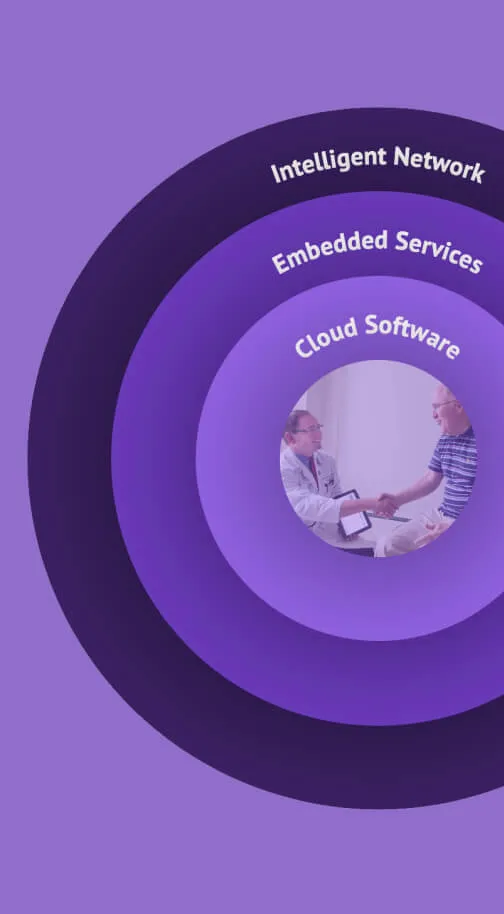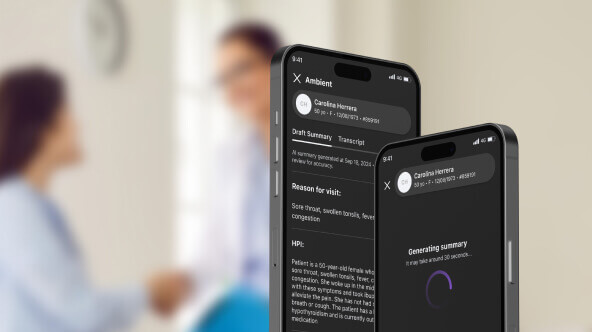The pandemic has officially ended, but burnout rates for physicians and their staff continue to remain significant: in athenahealth’s recent Physician Sentiment Survey, 93% of physicians today reported feeling burned out on a regular basis, spending 15 hours each week working outside of normal business hours, with over 60% of physicians citing administrative requirements and excessive documentation requirements as the key contributor to burnout.
Partly, this is due to the changing healthcare landscape that has added complexities to how care is accessed, delivered, and paid for. Additionally, a major contributor to burnout continues to be the systems that both enable, and take away from, patient care. Healthcare technology, including EHRs or practice management software, hasn’t always delivered on efficiency, user experience, or many of the benefits once promised to clinicians. Simply put, those who have spent over a decade on education and training want to spend as much of their time as possible on their unique patient populations, not on all the distractions that too often come with the territory. For specialty practices and specialty sites of care, this need is even more urgent.
But the right solutions and technology, tailored to reduce administrative burdens and deliver relevant information in the moment of care can cut out the noise for clinicians and allow them to focus on caring for their patients.
Efficient workflows and insights at the point of care are critical to helping solve the problem. This is especially true for clinicians who practice within a particular specialty. These clinicians often feel that EHRs are not tailored to their specific needs, and they are left to hunt for relevant information within the patient’s chart. What specialty practices need is something built with the flexibility for their nuances – their workflows, how they run their practice, and the clinical complexities they deal with daily.
In recent years, specialty-specific EHRs have promised tailored solutions that might deliver highly personalized workflows, but leave behind critical capabilities, integrations, and practice management solutions that a larger scale generalist system can provide.
Today, we at athenahealth are launching a set of tailored specialty solutions to fill this critical gap.
We are enhancing our workflows tailored to meet the unique needs of specialties in a best of both worlds option that pairs all the key benefits from a best-in-class generalist EHR system with capabilities tailored to the unique challenges and needs of specialties and sites of care. Basically, giving specialty providers the ability to configure for their specific needs, and no extraneous features that get in the way.
One of our first solutions is purpose-built for women’s health practices. A woman’s healthcare journey spans her lifetime, so women’s health specialists need a solution that prioritizes (and documents) the entirety of that journey to deliver the most informed, coordinated, and compassionate care. They need the benefits of a robust, connected platform that can provide a 360-degree view of patient health, whether it's a new diagnosis of diabetes from their primary care provider, or a hospital discharge summary from their previous childbirth. Yet they also want workflows that work like they do and meet the needs of their specialty.
Another in our first set of our solutions is designed for Urgent Care centers. Urgent Care operators exist to meet urgent, ever-changing patient (and practice) needs. They benefit from a solution that is flexible and can scale as they grow and expand their offerings. Yet, they need specific capabilities that help them meet patients where they are to deliver a convenient, consumer-grade experience, from scheduling all the way through to their after-visit summary and access to test results.
Over the past two decades, we’ve developed a deep expertise in partnering with, and guiding, ambulatory practices, accumulating learnings from more than 150,000 diverse clinicians across athenahealth’s network. And in that time, not only has healthcare become more complex at all levels, but patients continue to express their desire for increased involvement in their care, and expectations for a consumer-grade experience. These expectations have put additional pressure on clinicians and practices in an already competitive landscape. That is why what we are doing is so exciting – so necessary. It’s an opportunity to use our learnings and expertise to change the game in healthcare, empower specialty practices, and give clinicians what they need to succeed and practices the chance to thrive.













